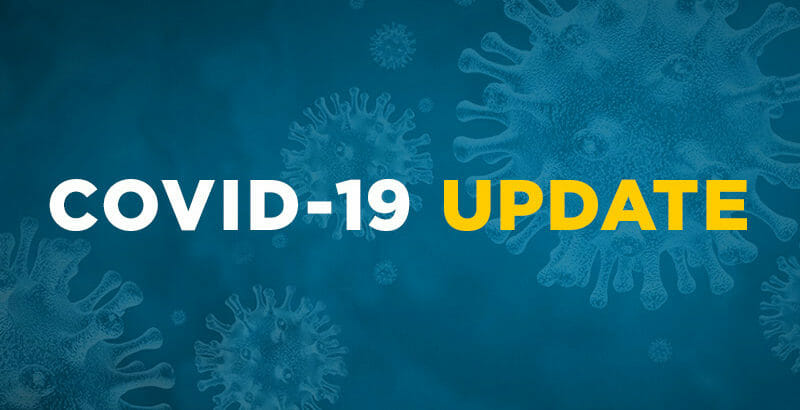COVID-19 and the Public Charge Rule Questions and Answers New York Immigration Attorney

COVID-19 and the Public Charge Rule Questions and Answers
Q: Will getting tested, treatment or preventative care for COVID-19 impact my immigration application under the public charge rule?
A: On March 13, the U.S. Citizenship and Immigration Services (USCIS) announced that the agency will not consider “testing, treatment, nor preventative care (including vaccines, if a vaccine becomes available) related to COVID-19” as part of a public-charge determination, nor as related to the public benefit condition applicable to certain nonimmigrants seeking an extension of stay or change of status, even if such treatment is provided or paid for by one or more public benefits (e.g., federally funded Medicaid). USCIS is encouraging anyone with symptoms that resemble COVID-19 (e.g., fever, cough, shortness of breath) to seek necessary medical treatment or preventive services. USCIS has indicated that such treatment or preventive service “will not negatively affect any alien as part of a future public charge analysis.”
Q: Will obtaining unemployment insurance impact my immigration application under the public charge rule?
A: Unemployment insurance payments are not generally taken into consideration by the U.S. Department of Homeland Security (DHS) for purposes of making a public charge determination. As DHS explained in its final rule on inadmissibility on public charge grounds, “DHS would not consider federal and state retirement, Social Security retirement benefits, Social Security Disability, post-secondary education, and unemployment benefits as public benefits under the public charge inadmissibility determination as these are considered to be earned benefits through the person’s employment and specific tax deductions.” In addition, USCIS indicates that unemployment benefits are not considered by USCIS in a public charge inadmissibility determination as unemployment insurance is considered by USCIS as an “earned” benefit. For a non-exhaustive list of other public benefits that USCIS does not consider in the public charge inadmissibility determination.
Q: Will receiving a recovery rebate under the CARES Act impact my immigration application under the public charge rule?
A: On March 27, 2020, President Trump signed into law the Coronavirus Aid, Relief, and Economic Security (CARES) Act, a $2 trillion dollar economic recovery package. The package offers relief to state and local governments, individuals, small and large businesses, and hospitals affected by the 2019 novel coronavirus (COVID-19) pandemic. In particular, the CARES Act provides for the issuance of one-time payments, called recovery rebates, (or commonly known as “stimulus checks”) to help individuals recover from the economic impacts of the COVID-19 pandemic. Eligible individuals with an adjusted gross income up to $75,000 can receive a one-time payment of $1,200. Married couples filing a joint tax return are eligible to receive a payment of $2,400, as long as their adjusted gross income is less than $150,000. Eligible individuals can also receive an additional $500 for each eligible child under the age of 17.
The recovery rebates are structured as automatically advanced tax credits to be disbursed by the Treasury Department. The DHS final rule on inadmissibility on public charge grounds is clear that tax credits are not taken into account for the purpose of a public charge determination. DHS indicates in its final rule that only public benefits as defined in 8 CFR 212.21(b) will be considered in the public charge inadmissibility determination. 8 CFR 212.21(b) defines a public benefit to include means-tested programs like Medicaid and cash assistance for income maintenance, however 8 CFR 212.21(b) indicates that cash assistance for income maintenance does not include tax credits. Furthermore, USCIS indicates that tax credits are not considered public benefits in a public charge inadmissibility determination.
Similarly, the Department of State (DOS) Interim Final Rule and the Foreign Affairs Manual (FAM) align with the DHS final rule in that the DOS interim final rule and FAM indicate that for the purposes of defining “public benefit”, cash assistance for income maintenance does not include tax credits. AILA’s DOS Liaison Committee is seeking additional clarification from DOS regarding how consular officers will factor in tax credits in public charge determinations at U.S. consulates overseas.
Q: Will receiving Pandemic Electronic Benefit Transfer (P-EBT) impact my immigration application under the public charge rule?
A: Pandemic Electronic Benefit Transfer (P-EBT) provides nutritional resources to families who have lost access to free or reduced-price school meals due to school closures due to COVID-19. Families will receive money on a new or existing EBT card to help fill the school meals gap. The average benefit is $5.70/day per student, retroactive to when school initially closed. In most states, families of eligible children will automatically receive a P-EBT card in the mail or those benefits will be loaded on to existing EBT cards. In some states, families may need to proactively apply for a P-EBT card to receive benefits. Even though P-EBT may be provided on the same card that families use to access SNAP benefits, P-EBT is not SNAP.
As DHS explained in its final rule on inadmissibility on public charge grounds, school meal programs are not considered public benefits under the public charge inadmissibility determination. In addition, USCIS indicates that “benefits through school lunch or other supplemental nutrition programs” are not considered by USCIS in a public charge inadmissibility determination. Since the P-EBT program has been introduced, states have received clarification in writing from USDA that Pandemic EBT will not be considered in the public charge inadmissibility determination.
Pandemic EBT is available regardless of immigration status to any student who was receiving free or reduced-price meals at school. For many immigrant families who have been excluded from unemployment assistance and stimulus checks, P-EBT may be the only new resource available to help them weather this challenging time. Using P-EBT benefits will not impact a parent or child’s immigration status.
To discuss any additional questions please contact Immigration Attorney Svetlana Prizant, Esq., at 718-407-0871
